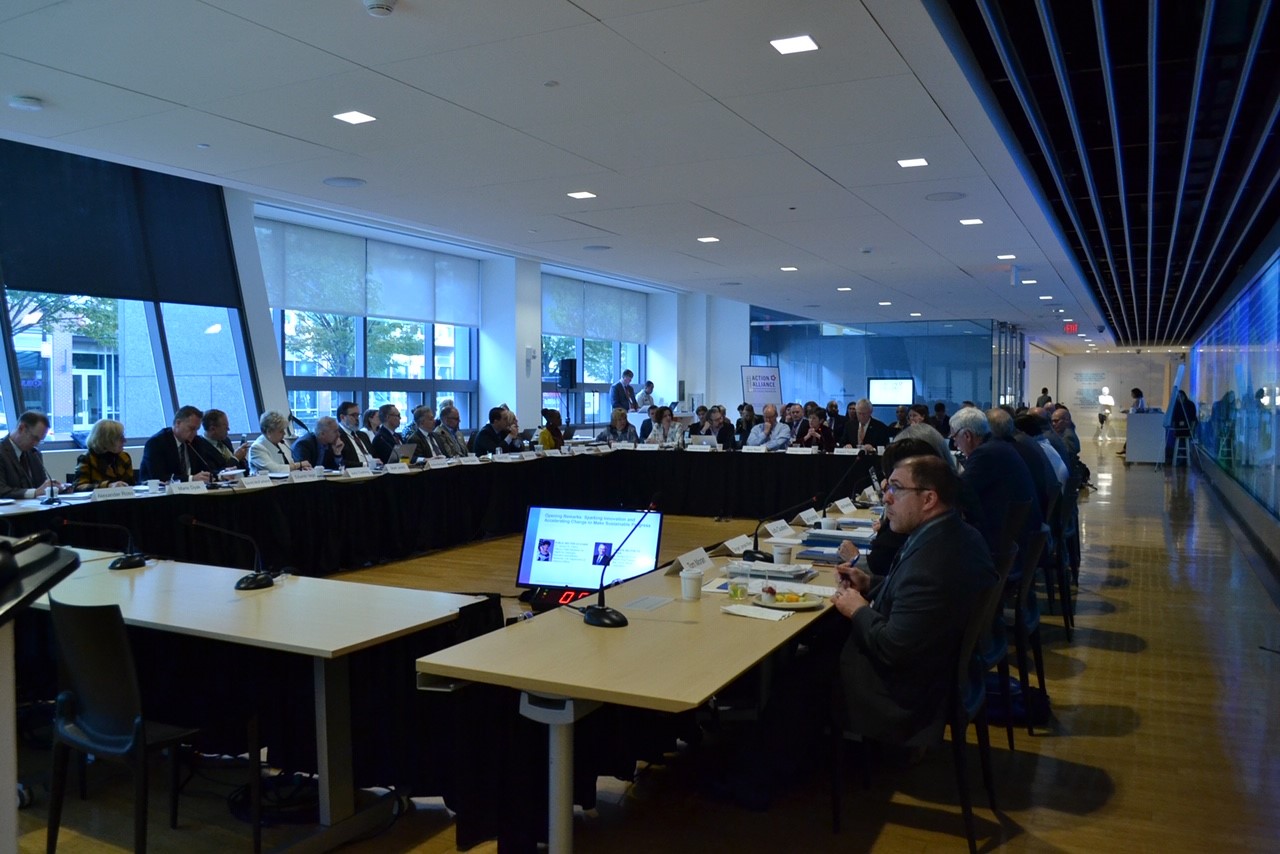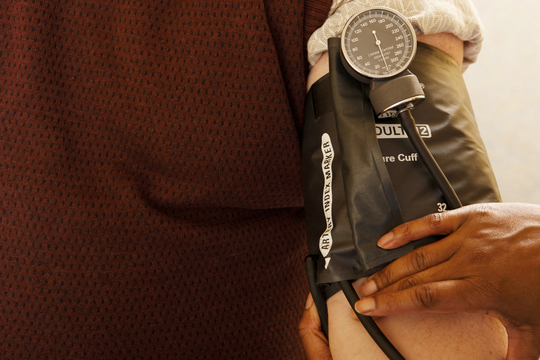In late October, leaders from transportation, media, entertainment, law enforcement, technology, healthcare and other industries convened at Kaiser Permanente’s Center for Total Health in Washington, D.C., to discuss ways to collaborate toward a national and comprehensive approach to preventing suicide, a public health issue affecting millions of American individuals, families and communities each year.
At first glance, this diverse group may seem unlikely to come together to address suicide in our country, but it’s important to recognize that suicide is a public health issue – not just a mental health issue – affecting communities across the country regardless of gender, sex, ethnicity, or sector.
The National Action Alliance for Suicide Prevention (Action Alliance), the nation’s public-private partnership working with more than 250 national partners to advance The Surgeon General’s National Strategy for Suicide Prevention, hosted this multisectoral meeting. Twice a year, the Action Alliance brings together in-person its Executive Committee, a diverse group of senior leaders from the private and public sector, to provide strategic direction in advancing suicide prevention at the national level. In its role as a convener and a catalyzer, the power of the Action Alliance lies in its ability to engage and unify diverse voices and perspectives to drive system-level change.
According to the latest federal data, more than 47,000 Americans lose their lives to suicide each year. Suicide rates are at their highest level and continue to rise. The moms, dads, brothers, sisters, aunts, uncles and community members lost each year represent just the tip of the iceberg:
- 1.4 million adults attempted suicide
- 3.3 million adults made a suicide plan
- 10.7 million adults had serious thoughts of suicide
Each suicide affects on average more than 100 people, including family, friends and colleagues.
Suicide is not explained by a single cause, but instead a range of factors – beyond mental health conditions alone – including relationship, substance abuse, physical health, job, financial and legal problems. Suicide is complex, and the Action Alliance recognizes that no one organization, public or private, can effectively address this issue on its own. The Action Alliance believes that only together, working across sectors, can we end the tragedy of suicide.
A decade since its founding, the Action Alliance is bolstered by its collective accomplishments and remains driven to do more to engage and unify passionate stakeholders and leaders in all sectors to collaborate toward a national and comprehensive approach to suicide prevention.
In 2020, the Action Alliance will continue to focus its work on three priority areas chosen for their potential to produce the change necessary to substantially lower the burden of suicide in our nation:
- Transforming health systems
- Transforming community-based suicide prevention
- Changing the conversation about suicide and suicide prevention
The Action Alliance also is working with partners across public and private sectors on actionable strategies, like the Action Alliance catalyzed Zero Suicide model and the Project 2025 initiative, to reduce suicide rates in the U.S.
“At KP, we see natural alignment between the work of the Action Alliance and KP’s vision of collective responsibility for the overall health of our communities and are incredibly proud to be a part of this meaningful, national, multi-sector partnership,“ said Don Mordecai, MD, National Leader for Mental Health and Wellness at Kaiser Permanente and member of the Action Alliance’s Executive Committee.
The Action Alliance’s Executive Committee members will come together again in spring 2020 at the Center for Total Health to assess progress and continue to refine the path forward.
About the Action Alliance for Suicide Prevention
The Action Alliance for Suicide Prevention (Action Alliance) is the nation’s public-private partnership for suicide prevention working with more than 250 national partners to advance The Surgeon General’s National Strategy for Suicide Prevention. If you or someone you know is in crisis, please call the National Suicide Prevention Lifeline at 1-800-273-TALK (8255).
About the Center for Total Health
The Center for Total Health is dedicated to sharing, developing and accelerating ideas that improve total health around the world. To host your next meeting at the Center, please complete the request form.




